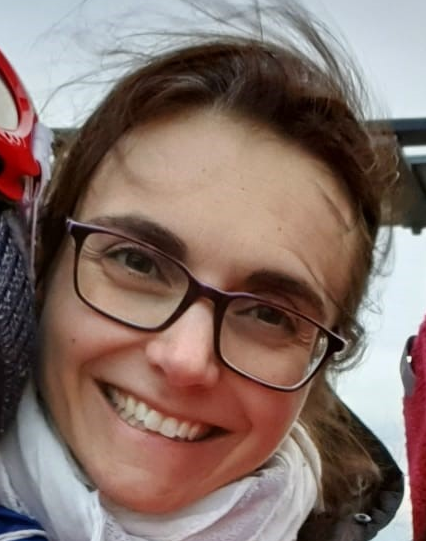Welcome to the blog of the project MetClimVOC!
September 2020
Are you working with atmospheric volatile organic compounds (VOCs)?
Do you want to know more about VOCs relevant for climate research and their metrology?
Do you wonder what is the current state-of-the-art in calibration, sampling and/or analytical methods for VOCs and how could they be improved?
Are you just curious about this project?

Then, this is your blog!
#First things first
We are metrologists and researchers from 13 organizations with several years of experience in atmospheric trace gases. Together, we participate in the project MetClimVOC ("Metrology for climate relevant volatile organic compounds"), a three-year project funded by the European Association of National Metrology Institutes (EURAMET) within the European Metrology Programme for Innovation and Research (EMPIR).
MetClimVOC aims to ensure traceable VOC measurements by developing novel, stable and traceable VOC reference gas standards; improving sampling and analytical methods for VOCs; and disseminating standards and metrological concepts (e.g. traceability of working standards to the international system of units allowing universal comparability (SI-traceability), well-defined calibration and measurement uncertainty) to atmospheric monitoring stations. This aim will contribute to meeting the Data Quality Objectives of atmospheric monitoring programs, such as GAW, AGAGE or ACTRIS.
Past EMRP projects HIGHGAS, KEY-VOCs and MetAMC had a great impact in measurement performed in industrial and environmental settings and helped set the state of the art of current gas metrology. MetClimVOC partners will use this experience to take the necessary steps to go beyond the current state-of-the-art of environmental measurements.
The close collaboration between metrological and monitoring communities during the project will maximise the knowledge transfer from the project to stakeholders and accelerate the uptake of fit-for-purpose project outputs by the monitoring stations.
You can find further information about the project and other useful links in this website. In the section
News, you will find information related to events, such as the start of the project last June or the productive virtual kick-off meeting held on June.
#Another boring blog? Reasons to read our blog
If you ask Google about the number of existing blogs in the world, figures get scary. Different answers identify around 500 million blogs (500 000 000!). So, why to choose reading this blog among other five hundred million blogs?
Reason 1: To enhance your scientific knowledge on VOCs relevant in climate research
Do not get confused by the style of this first post! Although it can suggest the opposite, we are passionate and competent professionals with several years of experience on VOC research. We are looking forward to sharing our knowledge with you at different levels: from general information on VOCs to specific information based on up-to-date research on gas standards, surface effects and analytical methods among others.
Reason 2: To get the last news on the current state-of-the-art on VOC measurements… and beyond!
After several years of monitoring VOCs and generating reference gas standards, we identified limitations and problems associated to current calibration, sampling and analytical methods. We aim to go beyond the current state-of-the-art by addressing these issues, through the development of new reference gas standards and the improvement of sampling and analytical (i.e. in situ and remote sensing) methods. We will share in this blog the progress done on these activities.
Reason 3: Metrology is cool
Metrology is essential in climate research, particularly in atmospheric monitoring, to get accurate and comparable datasets at global scale, which will contribute to identify climate long-term trends. One important aspect of metrology is the SI-traceability, not only for climate research but also for daily life; have you ever asked yourself why one kilo of apples in country A is the same (or should be the same) as one kilo of apples in country B?
Besides its importance, metrology is also cool because of its role as ice-breaker in social meetings. If you mention metrology, especially in a noisy place like a pub, the answer of your listener could be something like "Meteorology? Ah, yes! ... to know if tomorrow it will be raining or not"; or, even better, you could say that you are working in/with metrology, in that case you would get "Cool! So, what's the weather for tomorrow?". After that, you would need some exciting minutes of additional conversation explaining what metrology is.
Reason 4: But who the h*** are these people?
If you are still wondering who we are and would like to put faces to our posts, keep reading this blog. We will write a new entry every two months and because we are using a rotation system, at the end of the project you will get to know all of us!
Reason 5: Why not?
#Follow our project
Active on different social media channels
You have several ways to follow our work, in addition to this blog and the website. We are active on different social media like LinkedIn, Research Gate, Twitter, YouTube and even Facebook! In addition, we will share relevant project outputs in the Wikipedia site Volatile Organic Compound.
Become a member of our LinkedIn group
We will be also happy to have you on board within our LinkedIn group on VOC measurements. Become a member and do not hesitate to post every activity or publication related to VOCs.
Collaboration
We are building collaboration with several companies to disseminate the results in the best way, seeking to be as close as possible to real applications. If you think your company might be interested in collaborate, contact us.
Your expertise and opinion matter
Do not hesitate to contact us to share your expertise, suggestions and constructive critics to with us, or for any other matter. Use the contact form that you will find on Contact.
#About the authors

Maitane Iturrate-Garcia, Federal Institute of Metrology METAS. Environmental scientist, with background in marine pollution, environmental chemistry, plant ecology and climate change. Since 2018, she is involved in the dynamic preparation of reference gas mixtures of reactive gases at METAS Gas Analysis Group. Previously, she participated in the European projects CarboEurope-IP, GHG-Europe, Carbo-Extreme and ICOS preparatory phase.

Céline Pascale, coordinator of the MetClimVOC Project. Chemical engineer, graduated at EPFL (École Polytechnique Fédérale de Lausanne) in 2011. Since then, she has been working at METAS, the Swiss Federal Institute of Metrology. She is head of the Gas Analytic Group with particular know-how in the dynamic preparation of reference gas mixtures for ambient air compounds.

Maricarmen Lecuna, Politecnico di Torino. Chemical Engineer with background of process design, working in Metrology since 2014. She is currently Post-Doc in POLITO’s “Metrology for Process Engineering” research group, involved in the EMRP projects KEY-VOCs and MetAMC and the EMPIR project MetAMCII.
#Latest post
Go back to the latest blog post.
# Other posts
In this section, you can find the links to other blog posts.
February 2022 - Reference gas mixtures for oxy-VOCs
December 2021 - Terpenes in the atmosphere
October 2021 - Monitoring halogenated VOCs from the space
June 2021 - One year of project MetClimVOC!
March 2021 - How gas surface interactions can affect VOC monitoring?
January 2021 - Halogenated VOCs in the atmosphere: monitoring and traceability
November 2020 - Atmospheric trace gases: VOCs, impact climate change